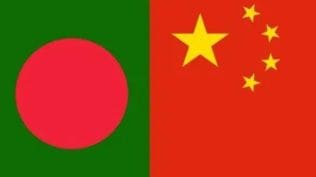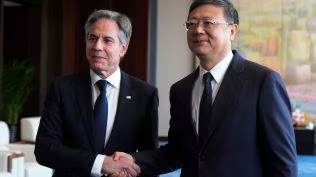What is the Outer Space Treaty and why the US and Russia are at odds over it?
The United Nations’ Outer Space Treaty is an international agreement binding member states to only use outer space for peaceful purposes. It spells out the principles governing the activities of states in the exploration and use of outer space, including the Moon and other celestial bodies.
The treaty came into force in October, 1967 after being ratified by Russia, the United Kingdom and the United States of America. It lays down the following governing principles:

📌 The exploration and use of outer space will be carried out for the benefit and in the interests of all countries and will be the province of all mankind
📌 Outer space will be free for exploration and use by all states
📌 Outer space is not subject to national appropriation by claim of sovereignty
📌 States will not place nuclear weapons or other weapons of mass destruction in orbit or on celestial bodies or station them in outer space in any other manner
📌 The Moon and other celestial bodies will be used exclusively for peaceful purposes
📌 Astronauts will be regarded as the envoys of mankind
📌 States will be responsible for national space activities whether carried out by governmental or non-governmental entities
📌 States will be liable for damage caused by their space objects
📌 States shall avoid harmful contamination of space and celestial bodies
Another arms race?
On April 24, Russia vetoed a UN Security Council resolution, proposed jointly by the United States and Japan, which called on countries to prevent an arms race in outer space.
The vote came after Washington accused Moscow of developing a space-based anti-satellite nuclear weapon, an allegation Russia has denied. The draft resolution was put to a vote by the US and Japan after nearly six weeks of negotiations. Had it been adopted, the resolution would have also emphasised the necessity of further measures, including political commitments and legally binding instruments, with appropriate and effective provisions for verification, to prevent an arms race in outer space in all its aspects. It received 13 votes in favor, while China abstained and Russia cast a veto.
While the United States said the move suggests that Moscow might be “hiding something,” Russia’s UN Ambassador Vassily Nebenzia, while speaking to reporters ahead of the vote, called it “a joke of a resolution.”
US officials have refused to share details of the intelligence they have to back the allegations. However, US intelligence officials, as per Reuters, believe the Russian capability to create a space-based nuclear bomb whose electromagnetic radiation if detonated would disable vast networks of satellites.
“As we have noted previously, the United States assesses that Russia is developing a new satellite carrying a nuclear device. We have heard President (Vladimir) Putin say publicly that Russia has no intention of deploying nuclear weapons in space. If that were the case, Russia would not have vetoed this resolution,” US National Security Advisor Jake Sullivan said in a statement, after Russia vetoed the resolution at the UN headquarters in New York. White House National Security Council spokesman John Kirby said Russia has not yet deployed such a weapon.
Governments have increasingly viewed satellites in Earth’s orbit as crucial assets that enable an array of military capabilities on Earth, with space-based communications and satellite-connected drones in the war in Ukraine serving as recent examples of space’s outsized role in modern warfare.
However, the UN text would have affirmed an obligation to comply with the Outer Space Treaty and called on states “to contribute actively to the objective of peaceful use of outer space and prevention of an arms race in outer space.”
The 1967 Outer Space Treaty bars signatories – including Russia and the United States – from placing in orbit around the Earth any objects carrying nuclear weapons or any other kinds of weapons of mass destruction.
Disclaimer: The copyright of this article belongs to the original author. Reposting this article is solely for the purpose of information dissemination and does not constitute any investment advice. If there is any infringement, please contact us immediately. We will make corrections or deletions as necessary. Thank you.





